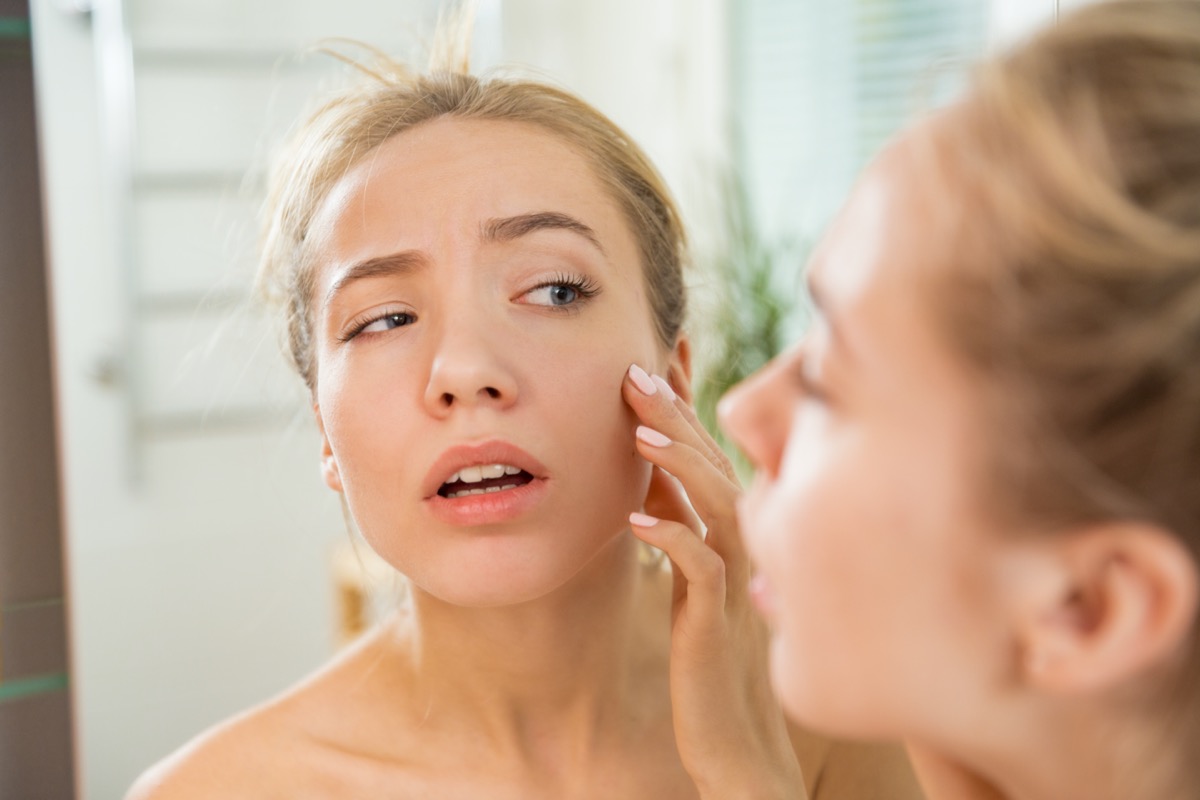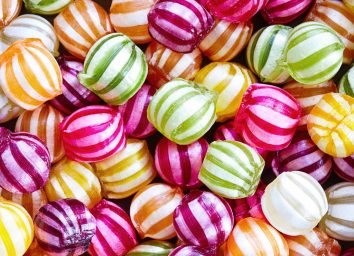The Worst Way Your Diet Can Age Your Face, According to a Dermatologist

I'm on an endless quest for healthier-looking skin. Usually, my search involves experimenting with expensive lotions and potions (and sometimes lasers); I love trying new products and procedures, which I often got to do as a magazine editor.
But recently, I found a skin-health hack that can prevent the signs of aging, and it doesn't come in a jar or require any recovery time—and best of all, it's free.
How Your Meals Mess With Your Face
We all know that what we eat can impact our waistlines and heart health, but it may be more surprising to learn that it also has a major influence on our skin. And, it turns out, that Beauty Enemy No. 1 is sugar—more specifically, added sugar. (For the worst offenders that contain added sugars, read up on this list of the 100 Unhealthiest Foods on the Planet.)
When I was developing my nutrition program, Sugar Free 3—a simple three-week program to crush sugar cravings and consumption, I consulted experts in every area of wellness, including dermatology. Whitney Bowe, MD, one of the most in-demand dermatologists in the country, had this to say: "There are multiple biological reasons to explain the connection, but one that stands out is the effects that refined carbs have on spiking blood sugar, which in turn can also increase hormones that stimulate oil production." She went on to explain that "these hormones can even change the composition of your skin's oil, making it more prone to issues."
Dr. Bowe says sugar causes issues that are more than skin deep, triggering "multiple changes in our body, from our cellular membranes and our arteries to our hormones, immune systems, and gut microbiome." Consuming too much sugar can even shorten your lifespan.
How to Prevent Sugar "Sag"
A less dire reason to avoid sugar is that it triggers a skin-wrecking process called glycation. This science fascinates me: Glycation is when sugar molecules bond to protein or fat molecules to create something called "glycation end products," or AGEs. (Fitting, don't you think?) These AGEs inhibit elasticity in all kinds of bodily tissues, including your skin. In other words, they can cause premature wrinkles—or what some experts call "sugar sag."
One factor in creating AGEs is having too much glucose and fructose (fruit sugar) in your diet. Glycation creates these AGEs and their effects are exacerbated by the sun's UV rays—your skin becomes less elastic.
"To see AGEs in action, simply look at someone who is prematurely aging—someone with a lot of wrinkles, sagginess, discolored skin, and a loss of radiance for their age," says Dr. Bowe. "What you're seeing is the physical effect of proteins latching on to renegade sugars. Scientists can document a parallel in animal research between how much sugar they consume and how fast their skin ages.
The bottom line: More sugar equates with older-looking skin that has lost its elasticity and suppleness prematurely. By contrast, reducing your consumption of added sugars can help improve your skin's tone, elasticity, and overall appearance. It can also help you shed unwanted, unhealthy weight.
Less than 10 percent of your daily caloric intake should come from added sugars, according to government regulations. And yet, a study from Tufts University found that a whopping 42 percent of our daily calories come from low-quality carbohydrates, like refined grains and added sugars. Not good—for our skin or overall health.
These 25 Healthy Foods That Fight Aging can get you on the path to better health, including a more luminous complexion.








